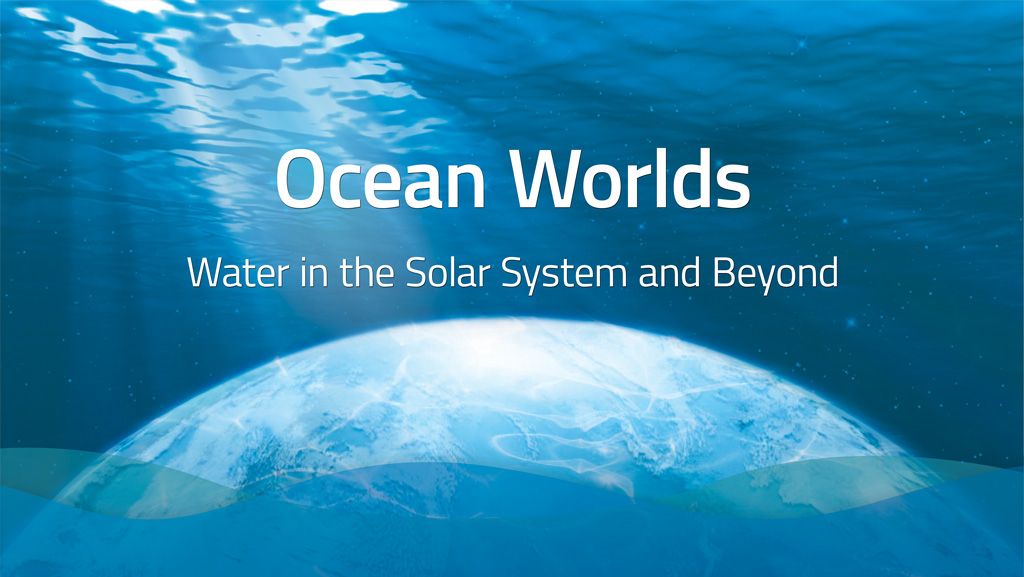NASA Says Milky Way Could Have ‘Ocean Worlds’ All Over
Article by Chris Ciaccia June 22, 2020 (nypost.com)
• NASA researchers have published a study in the Publications of the Astronomical Society of the Pacific saying that more than a quarter of the 53 exoplanets outside our solar system may be “ocean worlds” having significant amounts of water.
• “Plumes of water erupt from Europa and Enceladus, so we can tell that these bodies have subsurface oceans beneath their ice shells and they have energy that drives the plumes, which are two requirements for life as we know it,” said the study’s lead author Lynnae Quick, a NASA planetary scientist. “So if we’re thinking about these places as being possibly habitable, maybe bigger versions of them in other planetary systems are habitable too.” As such, Europa and Enceladus, moons that orbit Jupiter and Saturn, respectively, are icy celestial bodies that could harbor extraterrestrial life.
• Quick and the other researchers looked at exoplanets similar in size to Earth, along with exoplanets’ density, orbit, temperature, mass and distance from their star to reach their conclusions. These “ocean worlds” could release more energy than even Enceladus and Europa.
• Although studies tend to focus on exoplanets like ours that have a global biosphere so abundant it’s changing the chemistry of the whole atmosphere, NASA Goddard astrophysicist and study co-author Aki Roberge says, “(Within our) solar system, icy moons with oceans, which are far from the heat of the Sun, still have shown that they have the features we think are required for life.”
• Future missions searching for exterritorial life within our solar system include the Europa Clipper mission set to launch as soon as 2023, which will explore the surface of Europa. “If we find chemical signatures of life, we can try to look for similar signs at interstellar distances,” Quick added.
• As of June 2020. More then 4,000 exoplanets have been identified, approximately 50 of which were believed to be potentially habitable. A study published earlier this month suggested that there could be 36 alien civilizations in the Milky Way (see ExoArticle here). Another study this month suggested there could be as many as 6 billion “Earth-like” planets in the galaxy (see ExoArticle here).

A newly published study from NASA researchers suggests that there may be planets in the Milky Way galaxy other than Earth that have an ocean.
The research, published in Publications of the Astronomical Society of the Pacific, notes more than a quarter of the 53 exoplanets — planets outside the Solar System — that were studied could potentially be “ocean worlds,” planets that have significant amounts of water.

“Plumes of water erupt from Europa and Enceladus, so we can tell that these bodies have subsurface oceans beneath their ice shells and they have energy that drives the plumes, which are two requirements for life as we know it,” Lynnae Quick, NASA planetary scientist and the study’s lead author, said in a statement. “So if we’re thinking about these places as being possibly habitable, maybe bigger versions of them in other planetary systems are habitable too.”
Europa and Enceladus, moons that orbit Jupiter and Saturn, respectively, are icy celestial bodies that could potentially be home to extraterrestrial life.
Quick, who specializes in volcanism and ocean worlds and the other researchers looked at exoplanets similar in size to Earth, including a group of seven in the TRAPPIST-1 system, 39 light-years from Earth. A light-year, which represents distance in space, is the equivalent of about 6 trillion miles.
In addition to size, they looked at density, orbit, temperature, mass and how far the planets are from their star to come up with their conclusions.
FAIR USE NOTICE: This page contains copyrighted material the use of which has not been specifically authorized by the copyright owner. ExoNews.org distributes this material for the purpose of news reporting, educational research, comment and criticism, constituting Fair Use under 17 U.S.C § 107. Please contact the Editor at ExoNews with any copyright issue.
